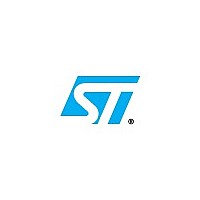STM32F100RB STMicroelectronics, STM32F100RB Datasheet - Page 82

STM32F100RB
Manufacturer Part Number
STM32F100RB
Description
Mainstream Value line, ARM Cortex-M3 MCU with 128 Kbytes Flash, 24 MHz CPU, motor control and CEC functions
Manufacturer
STMicroelectronics
Datasheet
1.STM32F100RB.pdf
(87 pages)
Specifications of STM32F100RB
Peripherals Supported
timers, ADC, SPIs, I2Cs, USARTs and DACs
Conversion Range
0 to 3.6 V
16-bit, 6-channel Advanced-control Timer
up to 6 channels for PWM output, dead time generation and emergency stop
Systick Timer
24-bit downcounter
Available stocks
Company
Part Number
Manufacturer
Quantity
Price
Company:
Part Number:
STM32F100RBH6B
Manufacturer:
STMicroelectronics
Quantity:
10 000
Company:
Part Number:
STM32F100RBH6BTR
Manufacturer:
STMicroelectronics
Quantity:
10 000
Part Number:
STM32F100RBT6
Manufacturer:
ST
Quantity:
20 000
Company:
Part Number:
STM32F100RBT6B
Manufacturer:
STMicroelectronics
Quantity:
1 500
Part Number:
STM32F100RBT6B
Manufacturer:
ST
Quantity:
20 000
Part Number:
STM32F100RBT6BTR
Manufacturer:
ST
Quantity:
20 000
Package characteristics
6.2.2
82/87
Selecting the product temperature range
When ordering the microcontroller, the temperature range is specified in the ordering
information scheme shown in
Each temperature range suffix corresponds to a specific guaranteed ambient temperature at
maximum dissipation and, to a specific maximum junction temperature.
As applications do not commonly use the STM32F10xxx at maximum dissipation, it is useful
to calculate the exact power consumption and junction temperature to determine which
temperature range will be best suited to the application.
The following examples show how to calculate the temperature range needed for a given
application.
Example: high-performance application
Assuming the following application conditions:
Thus: P
Using the values obtained in
This is within the range of the suffix 6 version parts (–40 < T
In this case, parts must be ordered at least with the temperature range suffix 6 (see
Table 53: Ordering information
Example 2: High-temperature application
Using the same rules, it is possible to address applications that run at high ambient
temperatures with a low dissipation, as long as junction temperature T
specified range.
Assuming the following application conditions:
Thus: P
Maximum ambient temperature T
I
level with I
mode at low level with I
P
P
This gives: P
P
–
T
Maximum ambient temperature T
I
level with I
P
P
This gives: P
P
DDmax
DDmax
Jmax
INTmax
IOmax
Dmax
INTmax
IOmax
Dmax
Dmax
Dmax
For LQFP64, 45 °C/W
= 82 °C + (45 °C/W × 447 mW) = 82 °C + 20.1 °C = 102.1 °C
= 175 + 272 = 447 mW
= 70 + 64 = 134 mW
= 50 mA, V
= 20 mA, V
= 20 × 8 mA × 0.4 V + 8 × 20 mA × 1.3 V = 272 mW
= 20 × 8 mA × 0.4 V = 64 mW
= 447 mW
= 134 mW
= 50 mA × 3.5 V= 175 mW
= 20 mA × 3.5 V= 70 mW
OL
OL
INTmax
INTmax
= 8 mA, V
= 8 mA, V
DD
DD
= 175 mW and P
= 70 mW and P
= 3.5 V, maximum 20 I/Os used at the same time in output at low
= 3.5 V, maximum 20 I/Os used at the same time in output at low
STM32F100x4, STM32F100x6, STM32F100x8, STM32F100xB
OL
OL
OL
Table 52
Table 53: Ordering information
= 0.4 V and maximum 8 I/Os used at the same time in output
Doc ID 16455 Rev 6
= 0.4 V
= 20 mA, V
scheme).
Amax
Amax
T
Jmax
IOmax
IOmax
OL
= 82 °C (measured according to JESD51-2),
= 115 °C (measured according to JESD51-2),
is calculated as follows:
= 1.3 V
= 64 mW:
= 272 mW
J
scheme.
< 105 °C).
J
remains within the










